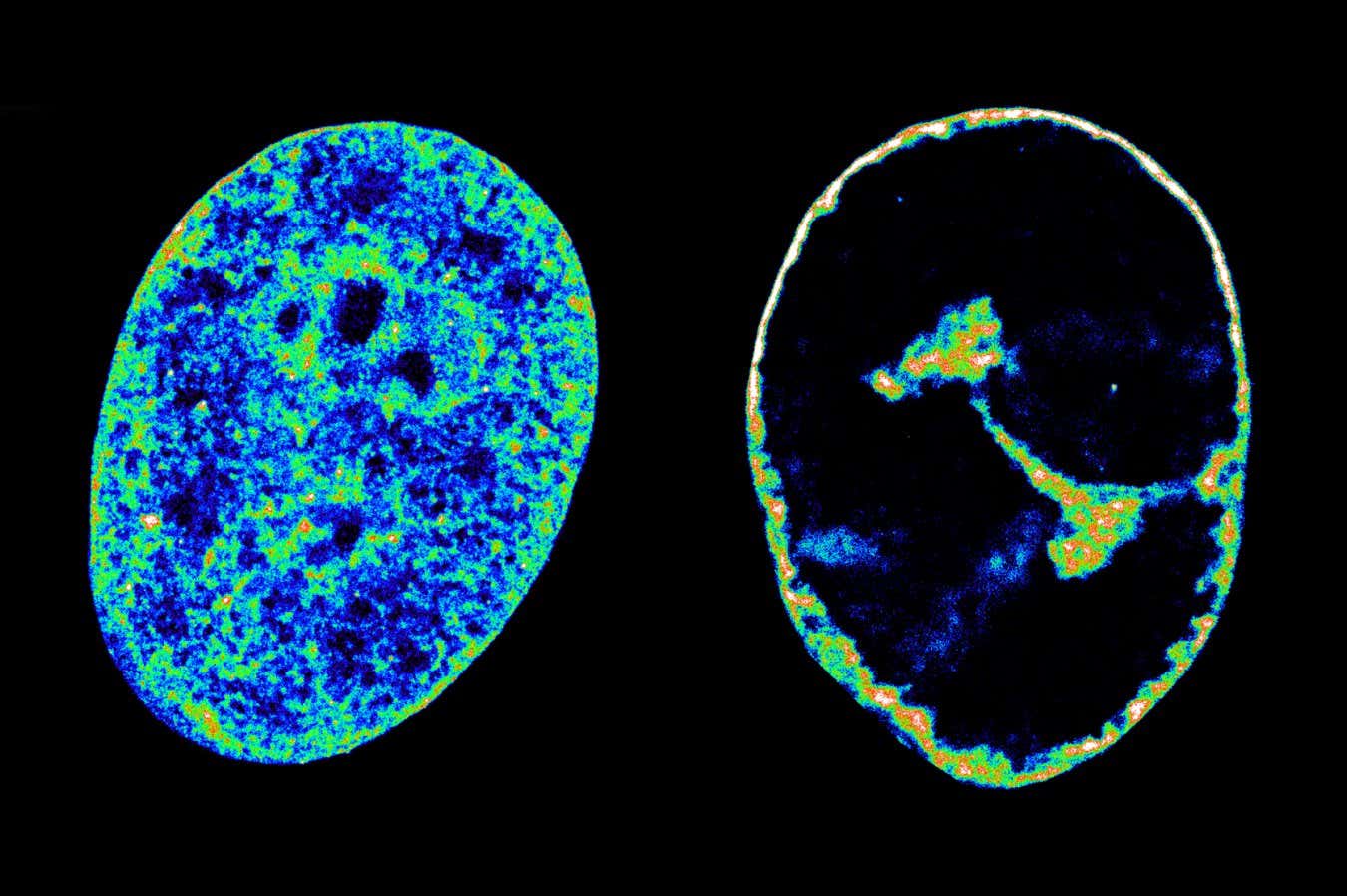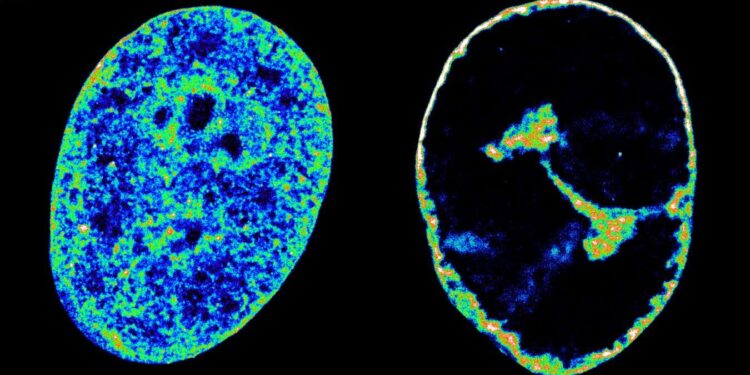
Human DNA in its natural state inside cells (left) compared with its state eight hours after being infected with the cold sore virus (right)
Esther Gonzalez Almela and Álvaro Castells García
The virus that commonly causes cold sores starts reshaping our genome within an hour of infection to boost its own growth, which scientists could take advantage of to treat severe cases.
Billions of people around the world have the infection, known as herpes simplex virus type 1 (HSV-1), although many of them don’t know it. It can spread through contact with other cold sores, saliva or even unbroken skin around the mouth.
After invading host cells, the virus replicates in the nucleus, where genetic material is stored within strands of DNA. These strands wrap around proteins, with some regions forming tight coils, inactivating the genes within them, while others form wider loops, where genes are active. In these looser regions, proteins can unwind and transcribe DNA into the molecule RNA, which encodes for proteins that keep the cell running.
Prior studies have shown that the human genome becomes more tightly coiled during HSV-1 infection, which may disrupt cell function, but it was unclear why this coiling occurs.
To learn more, Alvaro Castells-Garcia at the Centre for Genomic Regulation in Barcelona, Spain, and his team imaged HSV-1 while it infected human lung cells, using a microscope that can capture structures 3500 times thinner than a strand of hair. “It’s a higher resolution than most prior studies,” says Castells-Garcia.
They found that within one hour of the virus entering cells, it had already stolen transcription proteins away from the human genome, confirming the results of prior studies.
But they also showed that this theft is what seems to cause the host DNA to coil up more tightly, making it shrink to 30 per cent of its pre-infection volume within eight hours of infection.
The virus also made contact with specific regions of the host genome that encode for the transcription proteins it steals, preventing those regions from coiling up and boosting the activity of genes within them that help it grow.
“We used to think it made contact with our genome randomly,” says team member Esther González-Almela, also at the Centre for Genomic Regulation. “But the virus is able to contact our own genome in specific regions, and these regions usually harbour genes that are involved in the continuity of infection, in making viral RNA and proteins.”
In another part of the study, the researchers found that using an experimental cancer drug to block one of the transcription proteins that HSV-1 steals prevented it from replicating in human lung cells in the lab. This suggests that the drug could help treat HSV-1 in people with severe cold sores or those who have a suppressed immune system and are more likely to experience complications, says González-Almela. Milder cases are usually left to clear up on their own.
It could even work against other viruses, such as adenoviruses, which cause colds, and varicella zoster virus, which causes chickenpox. “Other viruses similar to HSV-1 may use similar strategies,” says Benjamin Krishna at the University of Cambridge. “There’s a possibility that these [sorts of experimental drugs] could treat those as well,” he says.
Topics:
Source link : https://www.newscientist.com/article/2484960-cold-sore-virus-immediately-reshapes-our-genome-to-boost-its-growth/?utm_campaign=RSS%7CNSNS&utm_source=NSNS&utm_medium=RSS&utm_content=home
Author :
Publish date : 2025-06-19 10:00:00
Copyright for syndicated content belongs to the linked Source.


